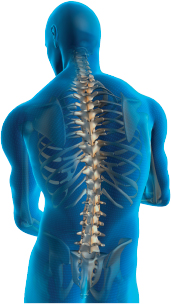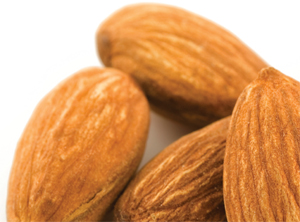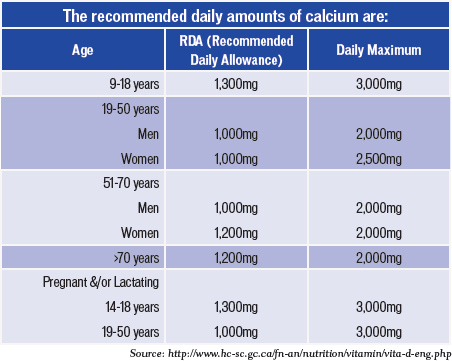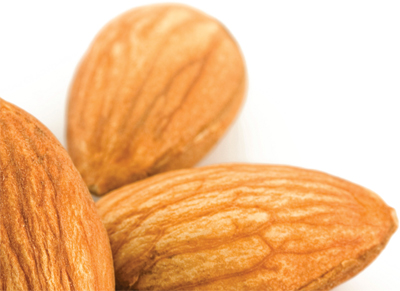SPECIAL FEATURE
BOOST YOUR BONES
(And More!)
WITH CALCIUM

What is Calcium?
We’ve all been told that drinking milk will help us grow up strong. That’s because milk contains calcium, one of the most important nutrients your body needs. Calcium is necessary to maintain the strength of your bones and teeth, of course, but it also helps regulate nerve and muscle functions, and it allows for blood clotting.
When you were a kid, you really were laying the foundation for the future health of your bones (so hopefully you listened when your parents told you to drink that milk!). In fact, some health professionals have called osteoporosis, a common older person’s disease, “a pediatric disease with geriatric consequences.” This is because the amount of bone mass that is built up during your childhood will determine how much your bones will weaken later in life. As you age, your body begins to absorb calcium less efficiently, which causes your bone density to decline. You can help prevent this bone loss by eating calcium-rich foods, exercising with weights on a regular basis and avoiding calcium-leaching products such as sodas.
How Much Calcium Do I Need?
The amount of calcium you need really depends on your age and sex. I’ve included a chart (at right) so you can find out what’s best for you.


Where Do I Find Calcium?
The best way to get your calcium and other vitamins and minerals (micronutrients), as well as your protein, carbs and healthy fats (macronutrients), is by eating a variety of whole, natural foods. Check out this list to find out how to add the most calcium to your diet.

DAIRY PRODUCTS
Milk: 1 cup = 300mg
Yogurt: 1 cup = 400mg
NOTE: While you’re on my Scary-Easy Weight-Loss Plan, you will find dairy to be limited. While following this plan or if you are sensitive to dairy or choose not to have it, there are plenty of high-calcium non-dairy choices. Some even contain as much calcium as a glass of milk!
LEAFY GREENS
Kale, cooked: 1 cup = 200mg
Spinach, cooked: 1 cup = 250mg
Broccoli, cooked: 1 cup = 100mg

SEAFOOD
Salmon, bones in: 6 oz = 300mg
Seaweed, wakame: 100g = 150mg

NUTS/SEEDS
Almonds: 1/3 cup = 125mg
Sesame seeds: 1 Tbsp = 88mg
How Do I Make Sure I’m Getting Enough?
If you are not getting enough calcium-rich foods in your diet at a given time, then you need to consider taking a calcium supplement. This may be the case if you’re getting less than 1,000 to 1,200mg of calcium out of your food each day. You should also take calcium supplements if you’re osteopenic/osteoporotic, postmenopausal, if you drink a lot of soda or coffee (four or more cups per day), if you don’t exercise or if you smoke.
Here are two popular calcium supplements:
 Calcium citrate – doesn’t need to be taken with food
Calcium citrate – doesn’t need to be taken with food
 Calcium carbonate – needs to be taken with food
Calcium carbonate – needs to be taken with food
So which one should you take? Either supplement will give your body the calcium it needs, so it really depends on your preference. Calcium citrate is easier for the body to absorb because it’s wrapped in citric acid, which means it doesn’t require extra stomach acid to help it dissolve. On the other hand, calcium carbonate tends to be more commonly available and less expensive, but it may cause gas and bloating or leave you with a chalky taste in your mouth.
Generally, you should take one pill in the morning and one in the evening, and take the pill with vitamin D and magnesium for better absorption. Remember to avoid the foods and lifestyle choices that make it harder for your body to absorb calcium.